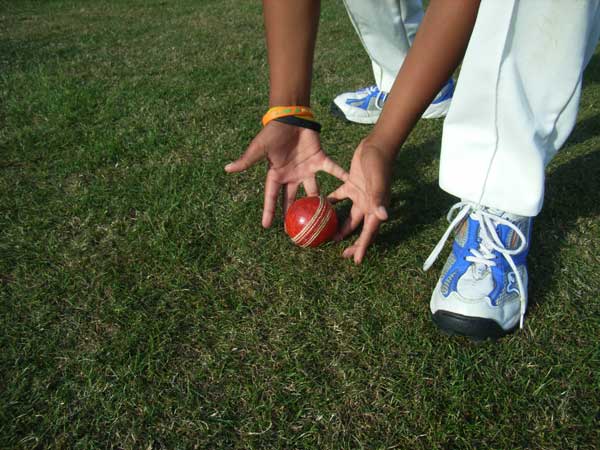What happens if a fieldsman over throws the ball directly out of the boundary.
Generally if a fielder over throws the ball for a boundary then we know extra four runs will be added to the batting side.
Similarly if a ball is over thrown by the fielder directly drops out of the boundary rope (six), will the umpires declare it as a six? Exactly not, it’s not a six and it is again a four. Because according to ICC cricket laws if a ball hit by the bat directly reaches out of the boundary then that ball will be declared as six by umpires.
Here the point is if at all the ball hit by the batsman hits or touches the ground before it directly reaches or drops out of the boundary we know that ball will not be considered as a six, in case of over throw, here the ball which is hit by the batsman already hits or touches the ground or you can say it is the grounded ball which is over thrown directly out of the boundary by the fielder which implies no question of giving it as a six because here the ball has already grounded in between I mean before it went out of the boundary.
Therefore if a fielder directly over throws a ball out of the boundary rope (six), that will not be given as a six.
But if the same ICC cricket laws are applied there could be one case where even if a ball is over thrown directly out of the boundary rope that can be given as a six.
Lets go into the details, lets assume here the ball which is bowled by the bowler is “No-Ball”, the batsman has hit the ball in the air directly into the hands of fieldsman, the fielder has taken the catch, the batsman went for the run, we know here even if the ball is “No-Ball” the run-outs are still possible, here the fieldsman who took the catch has over thrown the ball directly out of the boundary rope (six) who was actually looking for a run-out.
Here if we consider the whole process the ball which was hit by the batsman and then over thrown by the fielder hasn’t grounded any where in between “the ball hit by the batsman and before it went out of the boundary rope”, therefore here if we apply ICC laws if any ball hit by the batsman reaches out of the boundary rope even with the ball contacting the fieldsman (fielder over throwing the ball directly out of the boundary) with out grounding can be considered as a six.

